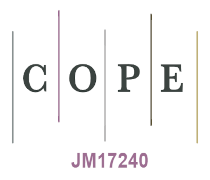Perfekcjonizm i stres a dobrostan psychiczny studentów uczelni wyższych. Testowanie modelu mediacyjnego
DOI:
https://doi.org/10.18778/1427-969X.16.01Słowa kluczowe:
perfectionism, student’s stress, well-beingAbstrakt
The purpose of this study was to evaluate the link between perfectionism treated as a personality’s trait, academic stress and college students’ psychological well-being. It was expected that the greater intensity of perfectionism achieved, the lower level of psychological well-being and the higher level of stress experienced. It was also assumed that the level of experienced stress would be a mediator of the relationship between perfectionism and psychological well-being. Alternative model with the well-being as a mediator of the relation between perfectionism and stress was also verified. Results of the study conducted on a sample of 298 students supported our assumptions. Higher level of perfectionism was associated with both higher stress level and lower sense of psychological well-being. Paths analyses provided evidence that relationship between perfectionism and psychological well-being can be explained by the high level of experienced stress (partial mediation). The analyses of well-being as a mediator in the relation between perfectionism and stress proved to be statistically significant and well suited to the sample (complete mediation). Results of this study are interpreted according to the Hobfoll’s Conservation of Resources Theory and Multiaxial Model of Coping (1998, 2006).
Bibliografia
Adkins K.K., Parker W. (1996), Perfectionism and Suicidal Preoccupation, „Journal of Personality”, 64, 529–543.
Google Scholar
DOI: https://doi.org/10.1111/j.1467-6494.1996.tb00520.x
Baron R.M., Kenny D.A. (1986), The Moderator-Mediator Variable Distinction in Social Psychological Research: Conceptual, Strategic, and Statistical Considerations, „Journal of Personality and Social Psychology”, 51, 1173–1182.
Google Scholar
DOI: https://doi.org/10.1037/0022-3514.51.6.1173
Bokszczanin A., Kaniasty K. (2002), Wpływ powodzi 1997 roku na poziom symptomów stresu pourazowego, depresji i samotności u dzieci i młodzieży. Mediacyjna rola Strategii Radzenia Sobie z Trudnościami, Część II, „Studia Psychologiczne”, XL, 4, 27–42.
Google Scholar
Essau C.A., OʼCallaghan J., Ederer E., Bokszczanin A., & Sasagawa S. (2008), Depressive, anxiety and stress symptoms among young people from three European countries, [w:] Quality of life – different perspectives, A. Głębocka i A. Gawor (red.), Oficyna Wydawnicza „Impuls”, Kraków.
Google Scholar
Chang E.C. (1998), Cultural Differences, Perfectionism, and Suicidal Risk: Does Social Problem Solving Still Matter?, „Cognitive Therapy and Research”, 22, 237–254.
Google Scholar
DOI: https://doi.org/10.1023/A:1018792709351
Chang E.C. (2000), Perfectionism as a Predictor of Positive and Negative Psychological Outcomes: Examining a Mediation Model in Younger and Older Adults, „Journal of Counseling Psychology”, 47, 18–26.
Google Scholar
DOI: https://doi.org/10.1037/0022-0167.47.1.18
Chang E.C. (2006), Perfectionism and Dimensions of Psychological Well-being in a College Student Sample: A Test of a Stress – Mediation Model, „Journal of Social and Clinical Psychology”, 9, 1001–1022.
Google Scholar
DOI: https://doi.org/10.1521/jscp.2006.25.9.1001
Diener E., Lucas R.E., Oishi S. (2002), Dobrostan psychiczny. Nauka o szczęściu i zadowoleniu życia, [w:] J. Czapiński (2004), Psychologia pozytywna. Nauka o szczęściu, zdrowiu, sile i cnotach człowieka, Wydawnictwo Naukowe PWN, Warszawa.
Google Scholar
Dixon W.A., Rumford K.G., Heppner P.P., & Lips B.J. (1992), Use of Different Sources of Stress to Predict Hopelessness and Suicide Ideation in a College Population, „Journal of Counseling Psychology”, 39, 342–349.
Google Scholar
DOI: https://doi.org/10.1037/0022-0167.39.3.342
Frost R.O., Marten P.A., Lahart C., Rosenblate R. (1990), The Dimensions of Perfectionism, „Cognitive Therapy and Research”, 14, 449–468.
Google Scholar
DOI: https://doi.org/10.1007/BF01172967
Frost R.O., Turcotte, T.A. (1995), Reactions to Mistakes Among Subjects High and Low in Perfectionistic Concern Over Mistakes, „Cognitive Therapy and Research”, 2, 195–205.
Google Scholar
DOI: https://doi.org/10.1007/BF02229694
Hewitt P.L., Flett G.L. (1991), Perfectionism in the Self and Social Contexts: Conceptualization, Assessment, and Association with Psychopathology, „Journal of Personality and Social Psychology”, 60, 456–470.
Google Scholar
DOI: https://doi.org/10.1037/0022-3514.60.3.456
Hewitt P.L., Flett G.L., Ediger E. (1996), Perfectionism and Depression: Longitudinal Assessment of a Specific Vulnerability Hypothesis, „Journal of Abnormal Psychology”, 105, 276–280.
Google Scholar
DOI: https://doi.org/10.1037/0021-843X.105.2.276
Hobfoll S.E. (1988), The ecology of stress, NY: Hemisphere, New York.
Google Scholar
Hobfoll S.E. (2006), Stres, kultura i społeczność. Psychologia i filozofia stresu, Gdańskie Wydawnictwo Psychologiczne, Gdańsk.
Google Scholar
Kobori O., Tanno Y. (2005), Self-oriented Perfectionism and its Relationship to Positive and Negative Affect: The Mediation of Positive and Negative Perfectionism Cognitions, „Cognitive Therapy and Research”, 29, 559–571.
Google Scholar
DOI: https://doi.org/10.1007/s10608-005-2835-4
Krok D. (2009), Religijność a jakość życia w perspektywie mediatorów psychospołecznych, Redakcja Wydawnictw Wydziału Teologicznego Uniwersytetu Opolskiego, Opole.
Google Scholar
Ryff C.D., Keyes C.L.M. (1995), The Structure of Psychological Well-being Revisited, „Journal of Personality and Social Psychology”, 69, 4, 719–727.
Google Scholar
DOI: https://doi.org/10.1037/0022-3514.69.4.719
Ryff C.D., Singer B.H. (2008), Know Thyself and Become What You Are: An Eudajmonic Approach to Psychological Well-being, „Journal of Happiness Studies”, 9, 13–39.
Google Scholar
DOI: https://doi.org/10.1007/s10902-006-9019-0
Słodkowska J. (2010), Perfekcjonizm i stres a dobrostan psychiczny studentów, Instytut Psychologii Uniwersytetu Opolskiego (niepublikowana praca magisterska), Opole.
Google Scholar
Stoeber J., Childs J. (2010), The Assessment of Self-oriented and Socially Prescribed Perfectionism: Subscales Make a Difference, „Journal of Personality Assessment”, 92 (6), 577–585.
Google Scholar
DOI: https://doi.org/10.1080/00223891.2010.513306
Zeigler-Hill V., Terry C. (2007), Perfectionism and Explicit Self-esteem: The Moderating Role of Implicit Self-esteem, „Self and Identity”, 6, 2/3, 37–153.
Google Scholar
DOI: https://doi.org/10.1080/15298860601118850
Pobrania
Opublikowane
Jak cytować
Numer
Dział
Licencja

Utwór dostępny jest na licencji Creative Commons Uznanie autorstwa – Użycie niekomercyjne – Bez utworów zależnych 4.0 Międzynarodowe.








